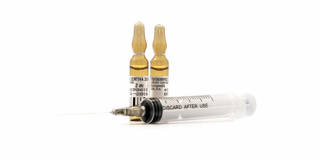LONDRES – L’épidémie du virus Zika, comme celle, avant elle, du virus Ebola, souligne les risques que les maladies infectieuses font courir à des pays entiers – et l’importance des vaccins pour combattre des épidémies aux évolutions rapides. De fait, des programmes sont d’ores et déjà en route, pour tenter de trouver comment vacciner les populations contre les deux virus.
Mais les vaccins ont aussi un rôle capital dans la protection contre une menace bien plus meurtrière et bien plus prévisible : les infections résistantes aux médicaments.
Contrairement aux épidémies soudaines, à diffusion rapide, comme celle du virus Zika, la résistance aux antimicrobiens ressemble à un accident automobile filmé au ralenti, et elle est déjà en marche. Les agents pathogènes résistants causent chaque année quelque 700 000 morts. Si nous ne parvenons pas à prendre les précautions nécessaires, ils tueront, en 2050, près de 10 millions de personnes par an.



LONDRES – L’épidémie du virus Zika, comme celle, avant elle, du virus Ebola, souligne les risques que les maladies infectieuses font courir à des pays entiers – et l’importance des vaccins pour combattre des épidémies aux évolutions rapides. De fait, des programmes sont d’ores et déjà en route, pour tenter de trouver comment vacciner les populations contre les deux virus.
Mais les vaccins ont aussi un rôle capital dans la protection contre une menace bien plus meurtrière et bien plus prévisible : les infections résistantes aux médicaments.
Contrairement aux épidémies soudaines, à diffusion rapide, comme celle du virus Zika, la résistance aux antimicrobiens ressemble à un accident automobile filmé au ralenti, et elle est déjà en marche. Les agents pathogènes résistants causent chaque année quelque 700 000 morts. Si nous ne parvenons pas à prendre les précautions nécessaires, ils tueront, en 2050, près de 10 millions de personnes par an.